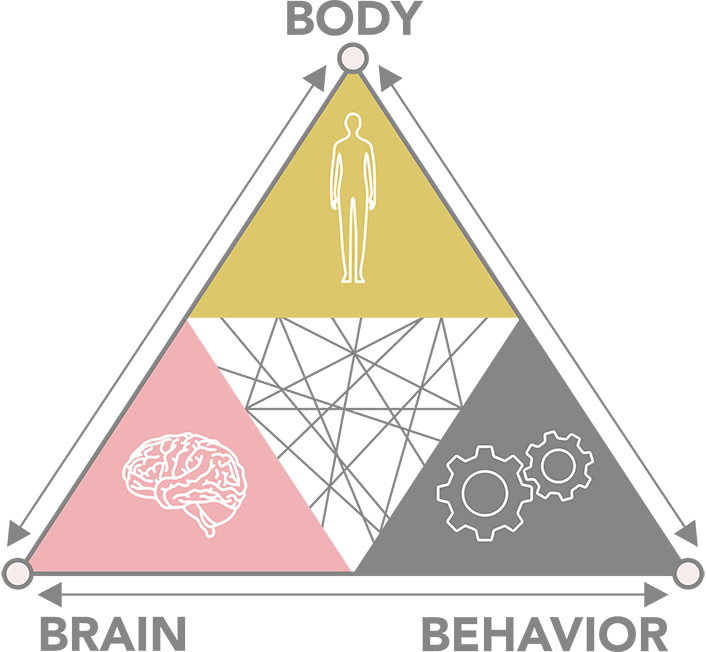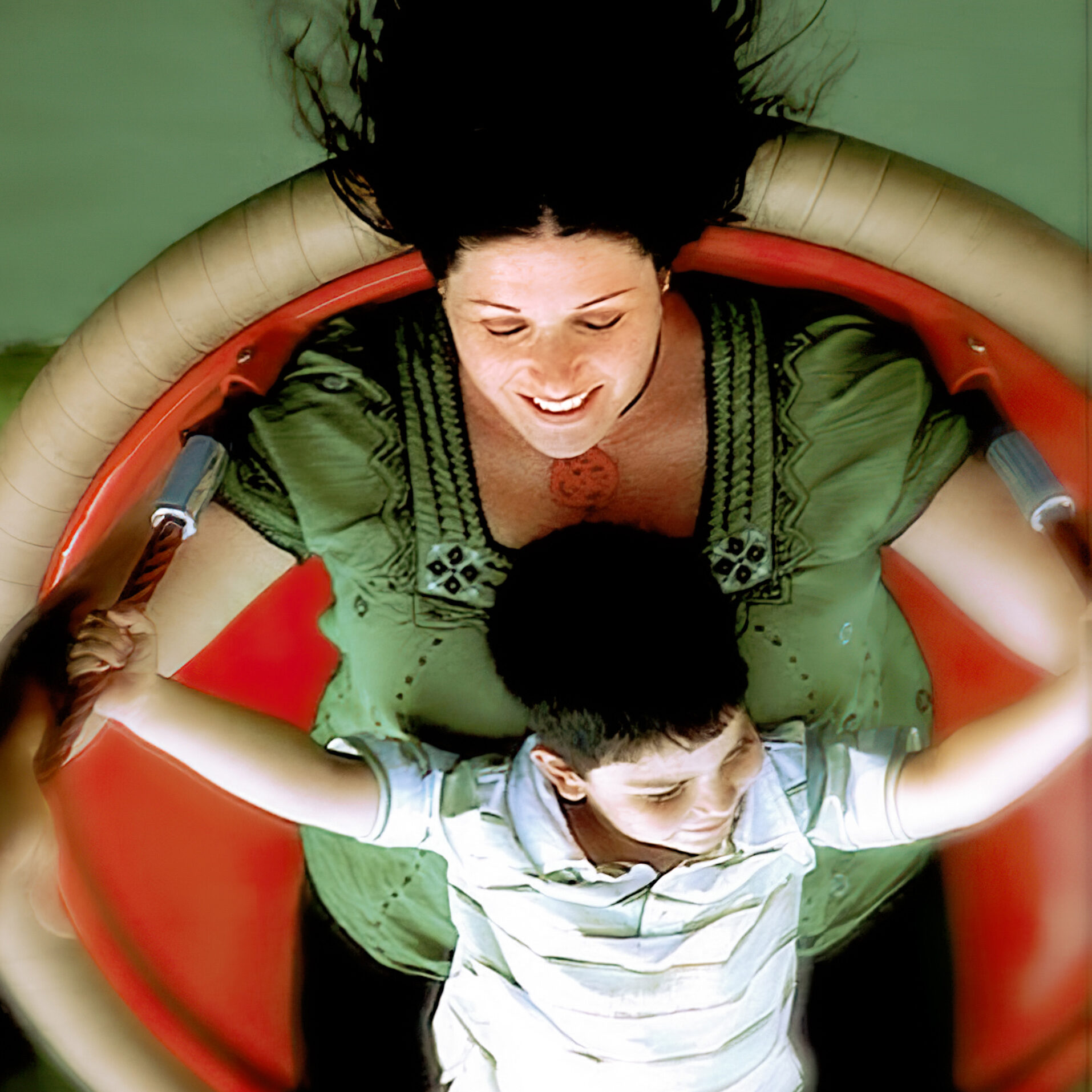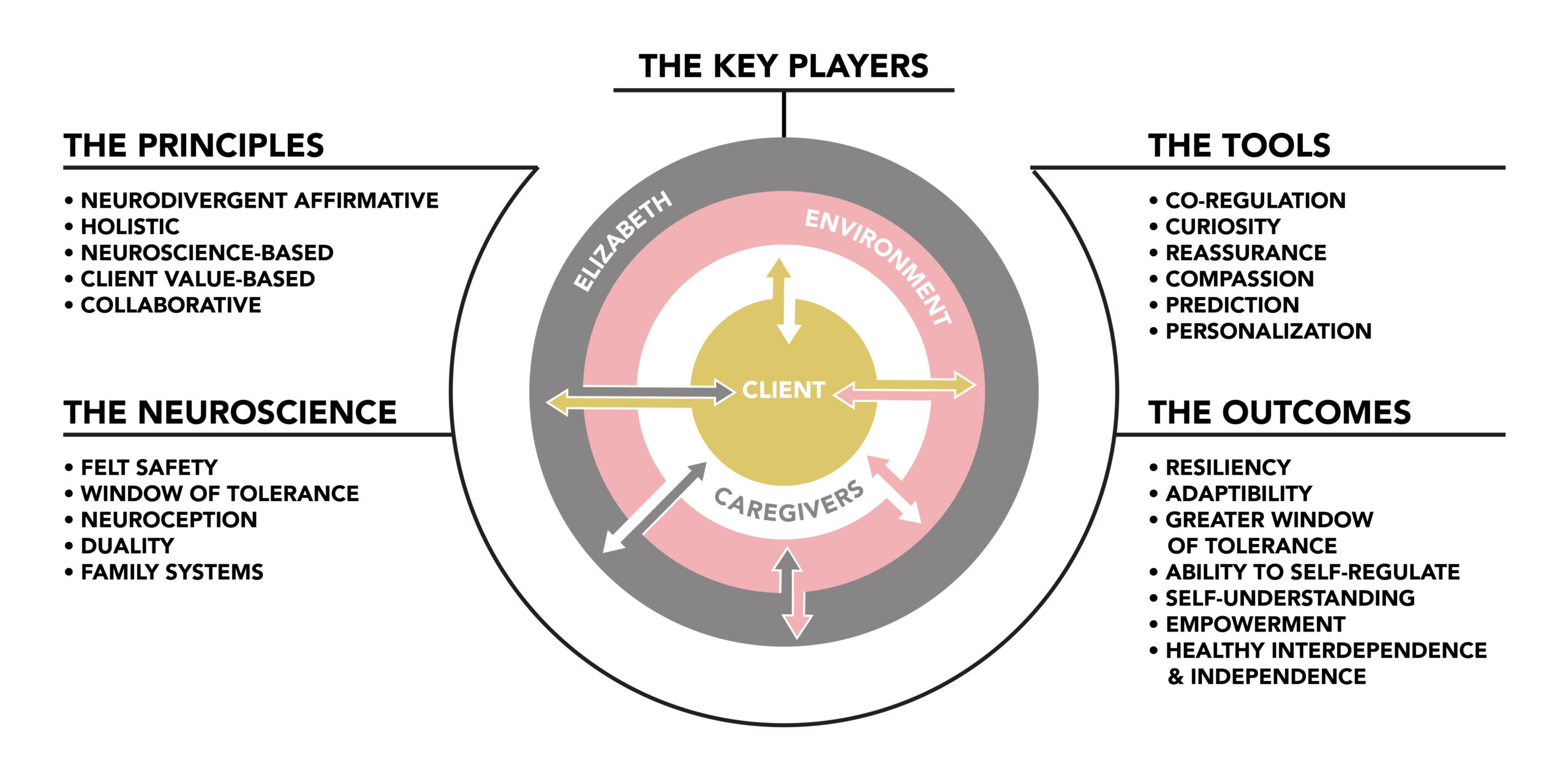What is Somatic Behavioral Coaching?
Somatic Behavioral Coaching harnesses the fundamental connection between the body and mind. Using a bottom-up approach grounded in neuroscience, Elizabeth works with clients to understand how their body’s physical responses and nervous system influence thoughts, emotions, and behaviors. Understanding behavior as a result of what’s happening in the body and brain, this approach empowers clients to manage stress, build self-awareness, and create lasting behavioral change.

The Challenge...
A threat is detected by the brain in the amygdala
(felt safety is subjective)
The prefrontal cortex (responsible for decision-making) is taken offline
Fear-related behaviors are activated in response
Behaviors, thoughts and emotions become less rational
Rewards, punishments, logical consequences and negotiations become ineffective
The Solution...

Existing state of the brain, body and behavior are gauged through an understanding of somatics and neuroscience
Co-regulation begins to create a sense of safety, thus keeping the prefrontal cortex online
Observation and coaching are used to help clients develop an understanding of what is happening to their body
Clients are empowered to navigate life more effectively in ways that work for them
"I believe that everyone in this world wants to feel good, do good, learn new things and achieve their goals. If this is not happening, I want to know why, and if you are here, you are asking that same question."
- Elizabeth Cambier


Goals achieved that clients are proud of:
- problem solving skills that work for their neurology
- helping clients learn tools to help them get unstuck
- filling their own time with meaningful activities while housemates do the same
- self-talk that is positive and builds up self-esteem
- regulating emotions after hearing the word “no”
- learning how to navigate and manage time at work
- trusting that feelings will not always be so big
- being self-motivated
- recognize and communicate about feeling states
- stress management techniques
- understanding that time is passing
Kind words from my lovely clients...
"As a parent of an adult with different abilities, I treasure the guidance from Cambier Consulting. After 10 years of research, therapies, programming, schooling, IEP-ing, I detached myself from the process and let the professionals do their job. Now, as a parent with an adult who has nowhere to go, we are on our own. Elizabeth has patiently guided back into an interactive relationship with my son that has redeveloped my ability to slow down enough to listen to his needs, honor his requests, and find a level of independence for both of us."
"When someone just says on paper that they taught people to do laundry and change sheets, it may not seem like much. The magic is in the details of how it is taught."


